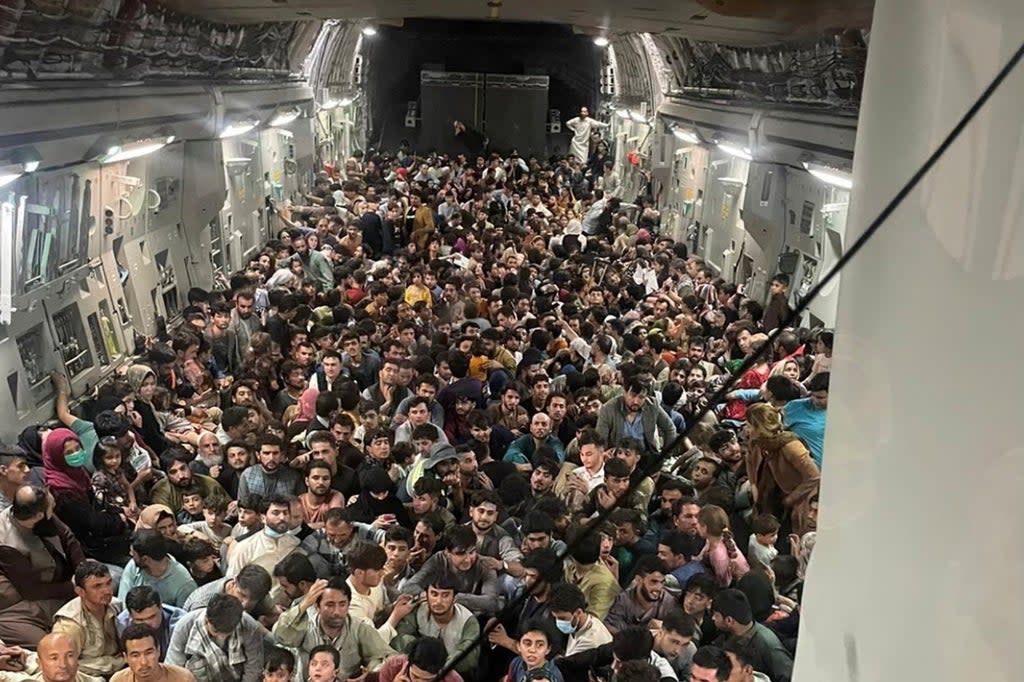KABUL, Aug 17 — Military flights evacuating diplomats and civilians from Afghanistan resumed early today after the runway at Kabul airport was cleared of thousands of people desperate to flee after the Taliban seized the capital.
The number of civilians at the airport had thinned out, a Western security official at the facility told Reuters, a day after chaotic scenes troops fired to disperse crowds and people clung to a US military transport plane as it taxied for take-off.
“Many people who were here yesterday have gone home,” the official said. Reuters witnesses, however, could still hear occasional shots coming from the direction of the airport, while streets elsewhere in the city appeared calm.
US forces took charge of the airport, their only way to fly out of the country, on Sunday, as the militants were winding up a dramatic week of advances across the country with their takeover of the capital without a fight.

Flights were suspended flights for much of Monday, when at least five people were killed, witnesses said, although it was unclear whether they had been shot or crushed in a stampede.
Media reported two people fell to their deaths from the underside of a US military aircraft after it took off, crashing to their deaths on roofs of homes near the airport.
A US official told Reuters US troops had killed two gunmen who had appeared to have fired into the crowd at the airport.

Despite the scenes of panic and confusion in Kabul, US President Joe Biden defended his decision to withdraw US forces after 20 years of war — the nation’s longest — that he described as costing more than US$1 trillion.
But a video yesterday of hundreds of desperate Afghans trying to clamber onto a US military plane as it was about to take-off could haunt the United States, just as a photograph in 1975 of people scrambling to get on a helicopter on the roof of a building in Saigon became emblematic of the humiliating withdrawal from Vietnam.
Biden insisted he had to decide between asking US forces to fight endlessly in what he called Afghanistan’s civil war or follow through on an agreement to withdraw negotiated by his predecessor, Republican Donald Trump.
“I stand squarely behind my decision,” Biden said. “After 20 years I’ve learned the hard way that there was never a good time to withdraw US forces. That’s why we’re still there.”
Facing a barrage of criticism, from even his own diplomats, he blamed the Taliban’s takeover on Afghan political leaders who fled and its army’s unwillingness to fight.

The Taliban captured Afghanistan’s biggest cities in days rather than the months predicted by US intelligence, in many cases after demoralised government forces surrendered despite years of training and equipping by the United States and others.
Chinese Foreign Minister Wang Yi told US Secretary of State Antony Blinken that the hasty pullout of US troops had a “serious negative impact, “ China’s state broadcaster CCTV reported, adding that Wang pledged to work with Washington to promote stability.
Blinken also spoke on Monday with counterparts in Pakistan, Russia, Britain, the European Union, Turkey and Nato about ensuring regional stability, the State Department said.
US Charge d’Affaires Ross Wilson dismissed in a Twitter message what he called false reports that he had left the country, saying he and staff remained and were helping thousands of US citizens and Afghans.
New regime
Afghan President Ashraf Ghani left the country on Sunday as the Islamist militants entered Kabul, saying he wanted to avoid bloodshed.
The UN Security Council called for talks to create a new government in Afghanistan after Secretary General Antonio Guterres warned of “chilling” curbs on human rights and violations against women and girls.
Nobel Peace Prize winner Malala Yousafzai said she was “deeply concerned” and called for world leaders to take urgent action. She urged Pakistani Prime Minister Imran Khan to open their country to refugees.
Former Afghan faction commander and prime minister Gulbuddin Hekmatyar said he would travel to Doha today to meet a Taliban delegation, accompanied by former President Hamid Karzai and former foreign minister and peace envoy Abdullah Abdullah, Al Jazeera TV reported.
Many Afghans fear the Taliban will return to past harsh practices. During their 1996-2001 rule, women could not work and punishments such as public stoning, whipping and hanging were administered.
Taliban spokesman Suhail Shaheen told Dunya News that the group would improve the security of Kabul and “respect the rights of women and minorities as per Afghan norms and Islamic values”.
Shaheen added the new regime would ensure representation of all ethnicities and that the Taliban were keen to work with the international community to rebuild the country.
Shaheen said on Twitter that the group’s fighters were under strict orders not to harm anyone.
“Life, property and honour of no one shall be harmed but must be protected by the mujahideen,” he said. — Reuters
Source: Malay Mail





